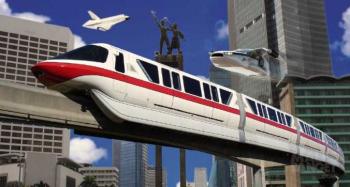Optimistic Government Will Make Indonesia Thrive
By: Adyarso Winardi) *
The dream of becoming an advanced Indonesia is a dream that never goes out. The government is optimistic that it can realize this hope by promoting a number of national developments. Now, improvements in a number of sectors can also be measured.
Jokowi, in his speech after the inauguration stated that his party had five development program priorities. Includes, human resource development, infrastructure development, simplifying and revising regulations, simplifying bureaucracy, and economic transformation.
In the first focus, the development of skilled and competent human resources and mastering Science and Technology (Science and technology), so as to be able to answer global challenges. The focus now is developing workforce capacity. Because, according to data from the Central Statistics Agency in 2019, it shows that the majority of the workforce is still well educated. Only around 12.57 percent graduated from universities and diplomas, while elementary and secondary school graduates reached 87.43 percent. This is considered as an imbalance that is quite prominent.
Therefore, President Jokowi increased Enrolment Ratio through compulsory schooling programs, suppressed gender disparities at the tertiary education level, and reduced inter-regional inequality. Which includes resources, teacher quality, funding, to the quality of schools.
The second focus is, infrastructure development will continue to facilitate access from the production area to the distribution area including the tourist area. According to the Oxford Economies in 2017, predicting Indonesia’s infrastructure development in the transportation sector (road, sea, rail and airport) continues to increase, which was originally from US $ 31 billion in 2020 to US $ 40 billion in 2025. Meanwhile, infrastructure development in the telecommunications sector is quite small compared to the transportation sector. With details only about US $ 2 billion in 2020 stepping on the figure of US $ 2.7 billion in 2025.
According to the 2017 PWC index, the need for infrastructure that continues to increase, is caused by several factors. Namely, geopolitical and environmental factors, changes in population and the era of disruption. In addition, infrastructure expenditure is considered to be relatively large. Thus, identification of emergency infrastructure is needed to determine which projects are considered effective.
Third, the simplification and revision of regulations that are considered to hamper job creation and business empowerment at the micro, small and medium level. This positive step is worth supporting. Because, according to the World Bank in 2019, the ease of business data of the archipelago ranks 73rd,
But when viewed from the starting business is still at the 134th level and dealing with construction permit ranked 112th. This means, regulations in Indonesia are considered complicated and take a long time. Thus creating regulations that are considered investment friendly, simplification, and also synchronizing regulations. Both in the central government and regional governments, it is also important to do.
Fourth, focus on simplifying the bureaucracy on a large scale, so as to create a slim, healthy and efficient bureaucracy. President Jokowi stated that his steps to summarize echelonization would only be two levels. And replaced by functional positions that are considered to value expertise and also the value of competence.
Not to forget, Jokowi asked ministers, bureaucrats, and officials to focus on ensuring the realization of the objectives of the development program. He stressed, there would be no forgiveness for those who are lazy.
Fifth, economic transformation will be carried out to reduce dependence on natural resources and be able to increase the competitiveness of modern manufacturing and services. Which is considered to have a fairly high added value. Many parties support the policy, considering that so far Indonesian exports have only been in the form of raw commodities. The government is considered to have to encourage exporters to process their commodities so that the value of their exports becomes higher by providing fiscal and non-fiscal incentives.
Earlier, in his inaugural address as President of the Republic of Indonesia Joko Widodo stated that Indonesia would enter into the top five world economies with poverty rates approaching zero percent. In fact, gross domestic product is able to reach US $ 7 trillion by 2045.
This of course will realize Indonesia’s ideals of becoming a developed country closer. Namely by working hard and realizing development programs according to government plans. Hopefully the performance of the second Jokowi government will be more advanced and accelerated to become a superpower and respected internationally. And will be able to create a capable economic stability.
) * The writer is a social political observer
